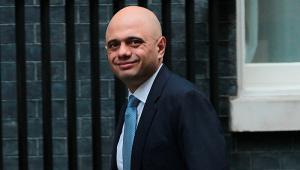In a statement, Javid said the deal was now “off the table” with the legislation to authorise a mayoral election for the North East Combined Authority in 2017 withdrawn and a Commons debate planned for Monday cancelled.
Under the agreement originally reached last October, a directly elected mayor would be created for the North East Combined Authority, and £30m would be provided annually for 30 years as part of an investment fund for the region to boost capital spending. The deal also included the creation of a North East Land Board that would have developed a target for housebuilding, while an Employment and Skills Board was to take over funding of post-16 skills training and employment schemes.
However, four of the seven councils covered by the deal – Sunderland, Gateshead, Durham and South Tyneside – rejected it this week, due to concerns over funding in light of the UK’s vote to leave the European Union.
Responding to the decision, Javid said he was "very disappointed" that four local authority leaders had voted against what he called “the pro-jobs devolution deal”.
The deal would have benefited residents he added, but the local decision would be respected.
“Local leaders in the North East Combined Authority have made a clear decision not to proceed with this ambitious and far-reaching devolution deal for their region. While I am disappointed, it is a decision I respect and so that deal is now off the table,” he said.
“Handing power back to northerners is a key part of our plans to build a Northern Powerhouse and our focus now will be on working to secure a new agreement for residents in those areas committed to progressing with devolution.”
He added that work would continue on the devolution deal for the Tees Valley, agreed at the same time as the proposal with the North East Combined Authority, where residents are set to vote for their first directly elected mayor in May 2017. This is one of a series of devolution deals that will authorities give local power over services including transport, planning and skills, and include areas such as Greater Manchester, Sheffield, Birmingham and Liverpool.




















